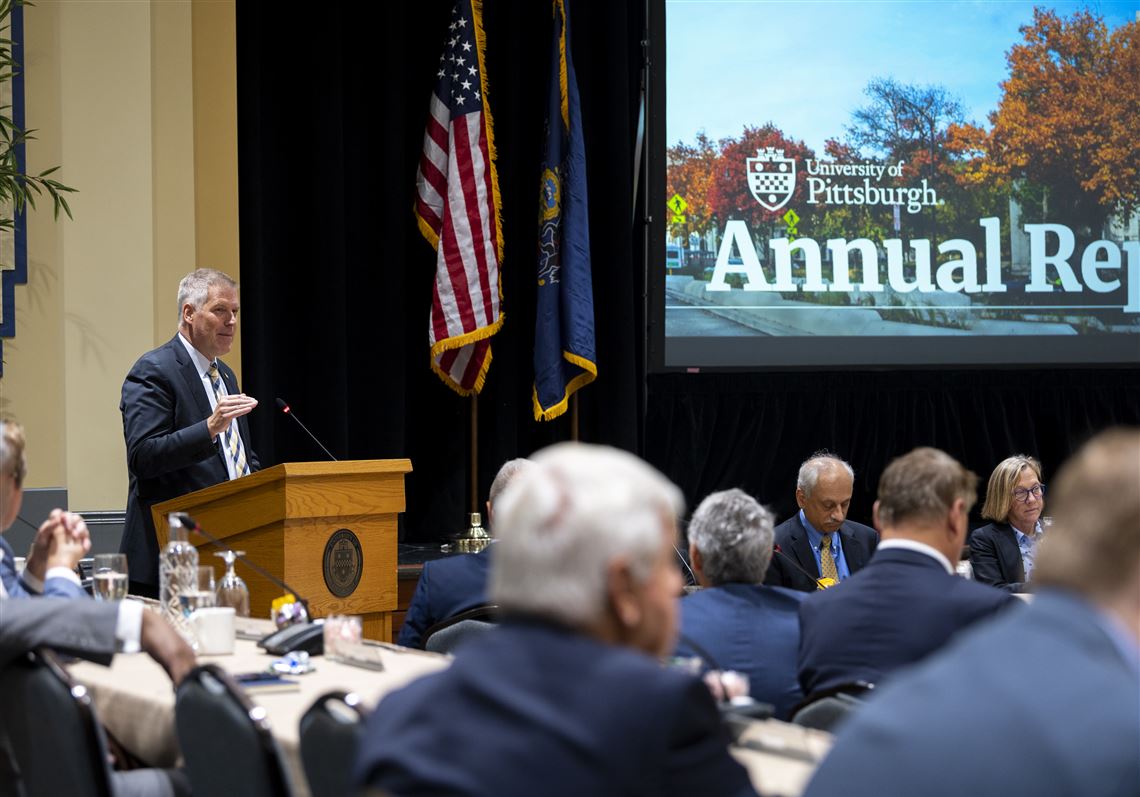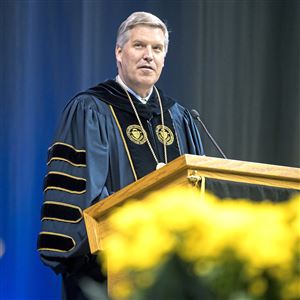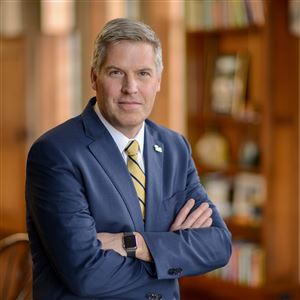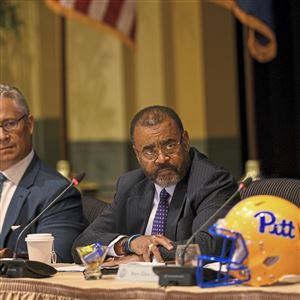It’s early, but a search for the University of Pittsburgh’s next chancellor already is yielding clues about attributes likely to be sought in one of the region’s most pivotal executive hires.
One of those attributes involves Pitt’s place in the world, Eva Tansky Blum, head of the search committee, said Friday.
“Pitt should be (and) is an institution that has a global presence. Someone who can help us move more in that direction I think is what we’re hearing from people,” she explained.
Supporting university efforts to be entrepreneurial and to have a positive impact on the broader community are among other likely attributes, she said. But Pitt expects to get a better idea in the coming weeks through outreach, including in-person forums Oct. 3 and 7, to solicit views of a range of constituencies, from students and employees to alumni and others beyond campus.
An online survey will remain open until Oct. 14, and updates on the search itself will be provided on the university’s search page.
Officials have said they want to identify a successor to Chancellor Patrick Gallagher by spring. The successful candidate could be from either higher education or someone from outside.
“We’ll look at both,” she said.
Ms. Blum spoke after Friday’s Pitt board of trustees meeting, during which Mr. Gallagher offered a report to the board touching on university gains during what will have been a nine-year tenure when he returns to teaching at the end of the current academic year.
Selecting someone to lead an institution that has 34,000 students, 14,000 employees and an outsized role in research and economic development in the state and beyond is a complicated task in any climate.
This search will be different from the one that brought Mr. Gallagher to Pitt for reasons from rapidly evolving world events to the pandemic and how it continues to impact behaviors of people who are still in part conducting business remotely.
“Ten years ago we had town halls with 200 people to hear from them — ‘Where do you think the university is going? What skills should we be looking for?’” Ms. Blum said. “We can’t do that anymore.“
She said that while there’s always room for improvement in any situation, “There’s no denying that the university has made an incredible amount of progress” during Mr. Gallagher’s tenure.
During the meeting, the chancellor used what will likely be his final annual report to highlight university gains from surging student applications and improved freshman academic profile to finances and diversity gains.
First-year applications to the Pittsburgh campus are up 92 percent from a decade ago. The entering main campus class this fall had an average GPA of 4.16, highest ever, and when the regional campuses are included, the GPA average over the decade rose from 3.79 to 4.03, Mr. Gallagher said.
New gifts and commitments to the university grew by 138% and athletics fundraising alone saw a 264% increase. Pitt reaches twice as many students with financial aid and 600 graduating seniors have participated in the “Panthers Forward” program, receiving $5,000 grants and making a non-binding pledge to pay it forward through future university giving, lowering by 20% their student debt, according to the university.
“We have some amazing forward momentum,” Mr. Gallagher said. ”What makes that positive story even more remarkable to me is that we did this in the face of historic headwinds — a global pandemic, economic and social upheaval, uncertainty about the future of higher education in the United States.”
Ire among some Republicans over Pitt’s use of fetal tissue in medical research put the university’s state appropriation for 2022-23 in jeopardy this spring. But ultimately the university secured its funding, and Friday Mr. Gallagher suggested that during the last decade support from Harrisburg has actually grown.
A few years back, uncertainty about the likelihood of future state support concerned Pitt leaders enough that they quietly contemplated a scenario in which they might have to go it alone without any funding from Harrisburg, effectively becoming private.
Asked about that Friday, Mr. Gallagher said that’s a situation for the next chancellor to assess, but he added, “My answer is the same.”
“It’s less a question about what Pitt should do. It’s really on the state’s side. Why would you walk away from a partnership that brings such benefit to the commonwealth?” Mr. Gallagher said. “That’s really the best argument.”
“We don’t get funded because we are in financial distress,“ he added. “We get funded because of the benefit” Pitt offers the commonwealth in areas that include keeping young adults in the state and overall economic growth.
Earlier this week, Pitt formally began its search by announcing membership on the 26-member search committee representing various campus constituencies and naming the search firm that will support the selection process.
Pitt board Chairman Doug Browning called students the university’s most important constituency
Ms. Blum deferred on a question about what students want most in the next leader, saying that should become clearer as input is gathered.
“Ask me in a month or two weeks,” she said. “I don’t want to say what the students need. I want them to tell us what they need.”
Bill Schackner: bschackner@post-gazette.com, 412-263-1977 and on Twitter: @Bschackner
First Published: September 23, 2022, 8:53 p.m.
Updated: September 24, 2022, 1:50 a.m.






















